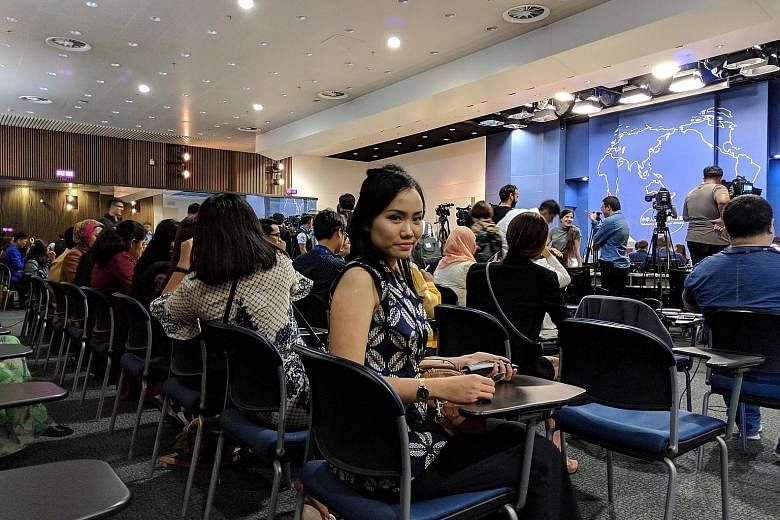China will work more closely with Asean to develop people-to-people linkages, officials here said yesterday on the 15th anniversary of the Asean-China Strategic Partnership.
One particular area of focus will be youth exchanges, China's ambassador to the regional bloc Huang Xilian said in a speech to open a new Asean-China youth camp focused on media literacy.
"You are the drivers of our respective nation building, and also the backbone of the future of China-Asean relations," he told 23 students and teachers in media and related fields who are in China for the one-week programme.
China has used the occasion of the 15th anniversary to deepen ties with Asean. This included Premier Li Keqiang visiting the Asean Secretariat in Jakarta in May - the highest-level visit ever made by a Chinese leader - during which he called for closer linkages between Beijing's Belt and Road Initiative and Asean's development strategies.
China has also designated a permanent site in Guizhou as the home of Asean-China exchanges, and last month opened a Tourism Cultural Promotion Centre in Guiyang.
Participants of the current programme, who hail from all 10 Asean countries, will visit China's media giants like China Radio International, and interact with scholars, media professionals and fellow students.
Yesterday, the group participated in a dialogue at Peking University with School of International Studies Professor Zhai Kun, where they discussed topics such as the different ways social media is being harnessed to disseminate news.
Communications lecturer Julia Wirza Zawawi, 32, from Universiti Putra Malaysia asked if China uses social media as a citizen feedback loop. She noted that Facebook has been a reliable barometer for netizen feedback in Malaysia, but the platform is blocked in China.
Prof Zhai said that while access to platforms like Facebook, Twitter and WhatsApp is blocked, China has a slew of alternatives like WeChat and more people are encouraged to join the Chinese platforms. "We have very many channels besides Facebook and Twitter, so social media is not a problem for us," he said.
Participants also joined in a regular press briefing by the Chinese Foreign Ministry, during which spokesman Lu Kang noted that Asean-China ties had blossomed in the 15 years since they were elevated to the level of a strategic partnership, with trade volume between the two sides surging past US$500 billion (S$693 billion) last year, almost a sixfold increase.
The number of students from Asean countries studying in China has also grown to 100,000 today, eight times the figure in 2003.
Mr Huang said both sides should tap the vast potential of 800 million youth in China and Asean and further increase the mutual flow of people.
"I sincerely hope that more and more people like you will travel between China and Asean and help to build a bridge of communication, friendship and cooperation," he told the participants.

